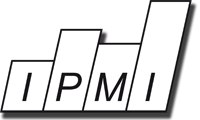Master Studies
Lectures in master studies:
Technology management supports the establishment of a company’s technological platform and thus encompasses the development and cultivation of the corresponding competences. Our course in ‘Technology Management’ focuses on the protection of technologies (theoretical background, Repertory Grid, Balanced Innovation Card), the evaluation of technologies (technology and patent portfolios, competition comparison), and technology development.
Successful project management relies on functional, methodical and social skills. The course in ‘Advanced Project Management’ is aimed at conveying in-depth knowledge regarding all three competence areas. Due to the multiplicity and diversity of project management activities, it is necessary to pick out particularly relevant features to meet the requirement of thematic consolidation. Hence, the course focuses on the following topics: technology road-mapping, stochastic project management, project management in the software industry, and co-operation in project teams.
A major task in system development and innovation management is providing orientation in terms of the status quo and the future perspectives of technologies. This may be achieved with the aid of different approaches relying on information extracted from patents, publications, blogs or similar data sources – especially, when outside technologies are concerned. These data sources can be tapped into by means of various methods, which essentially combine bibliometric analyses and text mining. The aim of the course is testing selected instruments and practical experience in dealing with these.
All business planning, but especially the part of decision-making in technology and innovation management depends ona sound analysis of framework conditions. Consequently, the methodology of future research is an essential complement to the disciplines mentioned above, as it helps generate concrete forecasts by which uncertainties regarding future developments are highlighted. This course introduces instruments of future and trend research, such as the Delphi Method, scenario technique and technology road-mapping.
Methodical inventing refers to the systematic, target-oriented and innovative solving of technical or technical-economic problems. It thus supports the creation of innovations, i.e. new products, processes or services. The respective course puts an emphasis on the concept of methodical inventing and its instruments (TRIZ), underlying ideas and specialized software tools, to point out a “different” approach to problem-solving.
Patents are a proven and well-established means for the protection of inventions. Hence, they play an increasingly important role in industry. Due to its tangible effect on business success, the qualified handling of patents has developed into an operational core task. Therefore, the management of these assets is the subject of the lecture ‘patent management’, and thus it is shown how a three-stage patent management process can be used to increase the success of a company in a targeted manner, from the search and analysis of patents to the strategy with patents.
Technology Roadmapping offers tools to formulate future strategies, strengthen their technological position in the course of time, identify chances and use resources in a target oriented manner. Powerful instruments like the scenario technique, software-based or TRIZ-based technology roadmapping are explained and tested in small groups.

